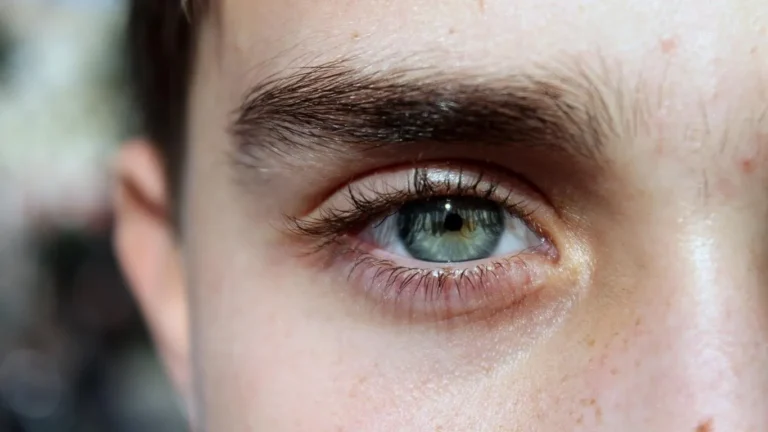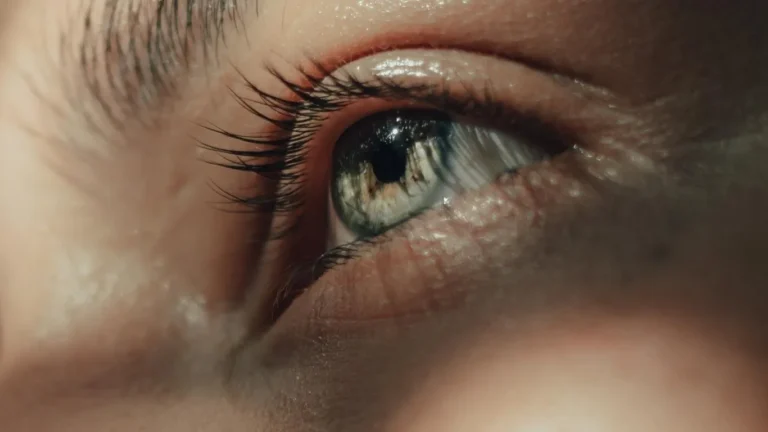Can Asthma Make Your Ribs Sore? What That Pain Really Means
Ever had one of those days where your chest feels tight, your ribs ache like you’ve been through a boxing match, and you’re left wondering, “Can asthma make your ribs sore?” You’re not alone—I’ve had patients sit across from me in clinic with that exact concern. And honestly? It’s a great question. Chest pain isn’t always straightforward, especially when asthma is in the picture. As a pulmonary nurse practitioner, I’ve seen how easily rib soreness gets brushed off or misattributed to something else. But spoiler alert: yes, asthma can contribute to rib soreness in more ways than one.
What’s Really Going On with Asthma and Rib Pain?

Let’s break it down. Asthma is notorious for inflammation and tightening of the airways. But when you’re having an asthma attack—or even a mild flare-up—your chest muscles work overtime. We’re talking serious strain here. That muscle fatigue? Yeah, it can absolutely make your ribs sore. And if you’re coughing a lot? That adds insult to injury—literally.
Just last month, a patient of mine came in complaining of persistent rib pain. She thought it was a pulled muscle from lifting groceries. Turns out, she’d been having nighttime asthma symptoms for weeks, coughing through the night without realizing how much pressure that was putting on her intercostal muscles (those little guys between your ribs). After starting her on a better inhaler regimen, the rib soreness started fading. Proof that the lungs and the ribs are way more connected than we give them credit for.
Here’s How Asthma Can Cause Rib Soreness
- Excessive coughing: Chronic cough is one of asthma’s sneakiest symptoms. That repetitive motion strains your rib muscles.
- Muscle overuse: During flare-ups, your body recruits every breathing muscle it can. That includes the ones surrounding your ribs.
- Poor breathing mechanics: When your airways are tight, your body compensates. This leads to inefficient, labored breathing which can stress your chest wall.
I remember back during my NP training, one of my preceptors used to say, “People breathe with their ribs more than their lungs when asthma kicks in.” That stuck with me—and it checks out when you look at how patients brace during attacks. You’ll see people hunched over, arms braced on their knees (classic tripod position), ribs rising and falling like crazy. That constant movement? Not gentle.
When Should Rib Pain Worry You?

Let’s be real—not every twinge in the ribs means something major, but sometimes it does. If you’re wondering, “Can asthma make your ribs sore—or is something more serious going on?”, a few signs can help you figure that out. And as someone who’s seen asthma masquerade as everything from heartburn to anxiety, trust me—context is everything.
- Persistent pain: If the soreness sticks around even after your asthma is under control, it could be musculoskeletal or something else entirely.
- Pain with breathing: Pain that worsens on deep inhale might be pleuritic—meaning there’s inflammation around your lungs. That needs a check-up.
- Fever or shortness of breath at rest: Could indicate infection or something more serious, like pneumonia or a pulmonary embolism. Don’t mess with this stuff.
One of my patients—a 40-something guy with well-controlled asthma—came in with sharp rib pain that he thought was asthma-related. But it turned out he had a small pneumothorax (collapsed lung). Had he ignored it thinking it was “just asthma,” things could’ve taken a dangerous turn. That’s why I always say: don’t self-diagnose rib pain if it feels off. Your lungs are important. Treat them like it.
Is It Normal to Feel Sore After an Asthma Attack?

Absolutely. Think about it—after a full-blown asthma attack, your chest has been through a marathon. Muscles that usually just help you breathe in and out casually are suddenly doing CrossFit-level work. It’s like waking up sore after a tough workout. The soreness around the ribs is your body’s way of saying, “Hey, that was intense!”
But here’s the thing: soreness should fade. If it doesn’t, or it worsens, that’s your cue to loop in your provider. And if it’s keeping you from breathing deeply? That’s a red flag. Shallow breathing to avoid pain can make asthma worse, and that’s a slippery slope.
Other Reasons Asthma Can Leave Your Ribs Aching

So yes, asthma itself can be the culprit, but there’s more to the story. Over the years, I’ve noticed that patients with sore ribs often have a few other things going on that make the situation worse. Sometimes it’s not just one thing—it’s a combination of factors piling up. And as someone who’s managed hundreds of asthma cases, I can tell you: context is everything.
Here are some of the other usual suspects that can sneak in and contribute to rib soreness:
- Overuse of rescue inhalers: Quick-relief inhalers help open your airways, but they also stimulate your muscles. When used too often, they can cause tremors or make your chest feel jittery—and that can stress your ribs too.
- Anxiety and hyperventilation: Many asthma patients develop anxiety about breathing (understandably!). Fast, shallow breathing from panic can lead to chest and rib muscle tightness.
- Sleeping in odd positions: This one’s sneaky. I’ve had patients wake up with rib pain just because they were sleeping all twisted up during an asthma flare-up, especially if they were propped awkwardly with pillows to breathe easier.
One patient I worked with had terrible rib pain for weeks, and she was convinced her asthma was worsening. But after we dug a little deeper, it turned out she was overusing her rescue inhaler out of fear. Once we worked on a long-term asthma control plan and some breathing techniques, the pain started easing up. Goes to show—it’s not always what it seems on the surface.
What You Can Do to Ease Rib Pain from Asthma

If your ribs are sore and asthma is part of the picture, there are a few practical things you can do to feel better. Trust me—these are things I regularly recommend to my own patients. The key is addressing both the asthma and the muscle strain. You can’t fix one and ignore the other.
Here’s what helps most:
- Stay ahead of flare-ups: If you’re using your rescue inhaler more than twice a week, it might be time to revisit your treatment plan. A controller medication can help prevent symptoms before they even start.
- Gentle stretching: Rib cage stretches and light yoga can help relieve tension. Avoid anything that feels like it’s pulling or straining more.
- Breathing exercises: Diaphragmatic breathing (belly breathing) can reduce how much your chest muscles have to work. Bonus: it also calms anxiety.
- Warm compresses: Heat can work wonders for sore intercostal muscles. Just 15–20 minutes can bring noticeable relief.
- Rest and hydration: I know—classic advice. But it’s true. Letting your body recover and staying well-hydrated helps reduce inflammation.
One tip I give all my asthma patients who deal with soreness: try placing your hand on your belly while breathing. If your hand moves more than your chest, you’re using your diaphragm—the right muscle for the job. If your ribs are lifting with every breath, your chest muscles are taking over, and that could be the source of the soreness.
When Rib Pain Isn’t Just from Asthma

Here’s the honest truth—not all rib pain in asthma patients is asthma-related. And that’s something I emphasize with my patients all the time. Being familiar with your own “normal” asthma symptoms makes it easier to catch when something feels different. And when something feels different, it’s always worth checking out.
There are a few red flags I always encourage people to watch for:
- Sudden sharp pain: If it comes out of nowhere, especially after a coughing fit or injury, it could be a muscle strain or even a cracked rib.
- Shortness of breath that doesn’t respond to your inhaler: This might mean the issue is something else entirely—like a heart or lung condition.
- Pain that worsens when lying down or radiates to other areas: That’s not typical of asthma and needs medical attention ASAP.
I had one teenage patient with moderate asthma who started having chest pain during sports. Everyone thought it was asthma until a cardiologist diagnosed her with a mild heart murmur. It wasn’t serious, but it taught me to never assume. You have to look at the whole picture.
Bottom line? If your ribs are sore and you’re asking yourself, “Can asthma make your ribs sore?” — the answer is yes, but it’s not the only answer. Always listen to your body. If it feels off, speak up. You know your baseline better than anyone else, and advocating for yourself is a huge part of managing any chronic condition.
How to Prevent Rib Soreness if You Have Asthma

By now, you probably know the answer to the big question—can asthma make your ribs sore? Yes, absolutely. But even more important is figuring out how to prevent it from becoming a recurring thing. As someone who works closely with asthma patients every day, I’ve seen that rib soreness often shows up when asthma isn’t fully under control—or when life gets chaotic and self-care slips through the cracks (we’ve all been there).
If you’re dealing with this kind of pain regularly, it’s worth zooming out and looking at your whole routine. A few small shifts can make a big difference in how your body feels—and how your asthma behaves long term.
My top prevention tips:
- Stay on top of your controller meds: I can’t tell you how many times I’ve had a patient say, “I only use my inhaler when I feel bad.” If you’ve got a controller inhaler, it needs to be taken daily—even when you feel fine. Think of it like brushing your teeth; you’re preventing a flare-up, not just reacting to one.
- Track your symptoms: Use a simple app or journal to log your breathing patterns, medication use, and any rib or chest soreness. This helps you and your provider spot trends early.
- Use a spacer with your inhaler: It makes a huge difference in how effectively the medicine gets into your lungs—and reduces the urge to take extra puffs.
- Warm-up before workouts: If exercise is one of your triggers, warming up slowly and using your inhaler 15 minutes before physical activity can prevent both asthma flares and post-exercise soreness.
One of my younger patients—a college soccer player—kept ending up with sore ribs after practice. We realized she wasn’t using her pre-exercise inhaler consistently. Once she started, not only did the soreness decrease, but she felt like she could breathe deeper during the game. Little changes = big results.
When Rib Soreness Signals You Need a New Asthma Plan

Here’s something I say a lot in clinic: your asthma plan should grow with you. What worked six months ago might not work today—and rib soreness can be one of those early warning signs that your treatment needs a tune-up. It’s like your body tapping you on the shoulder and saying, “Hey, something’s off.”
Ask yourself:
- Have you had more nighttime symptoms lately?
- Are you using your rescue inhaler more than 2x a week?
- Do you wake up sore, tight, or achy in your ribs?
If the answer to any of those is “yes,” don’t wait. Talk to your provider. We can adjust your inhalers, recommend lung function testing, or check for underlying conditions like GERD or vocal cord dysfunction that sometimes mimic asthma symptoms.
And if you ever feel like your concerns aren’t being taken seriously? Advocate for yourself. Find a provider who listens. I’ve had patients switch clinics and finally get the relief they’d been looking for simply because someone took the time to listen. You deserve that level of care—always.
Let’s Wrap This Up (But Gently, Like Those Rib Muscles)
Living with asthma isn’t easy. And adding rib soreness to the mix? That can make everything feel harder—breathing, sleeping, even laughing. But you’re not alone in this. With the right support, treatment plan, and daily habits, it is possible to breathe easier and feel stronger.
So the next time you find yourself wondering, “Can asthma make your ribs sore?”—remember, yes it can. But with awareness, care, and the right tools, you can take control of both your lungs and your quality of life.
References
Disclaimer
This article is for informational purposes only and is not a substitute for professional medical advice, diagnosis, or treatment. As a pulmonary nurse practitioner, I share general insights based on clinical experience, but always consult with your healthcare provider for personalized medical guidance. If you’re experiencing ongoing or severe rib pain, shortness of breath, or chest discomfort, seek medical care immediately.

Bianca Nala is a compassionate Nurse Practitioner with a strong background in primary and respiratory care. As a health writer for Healthusias.com, she combines her clinical expertise with a talent for clear, relatable storytelling to help readers better understand their health. Bianca focuses on topics like asthma, COPD, chronic cough, and overall lung health, aiming to simplify complex medical topics without losing accuracy. Whether she’s treating patients or writing articles, Bianca is driven by a single goal: making quality healthcare knowledge accessible to everyone.






